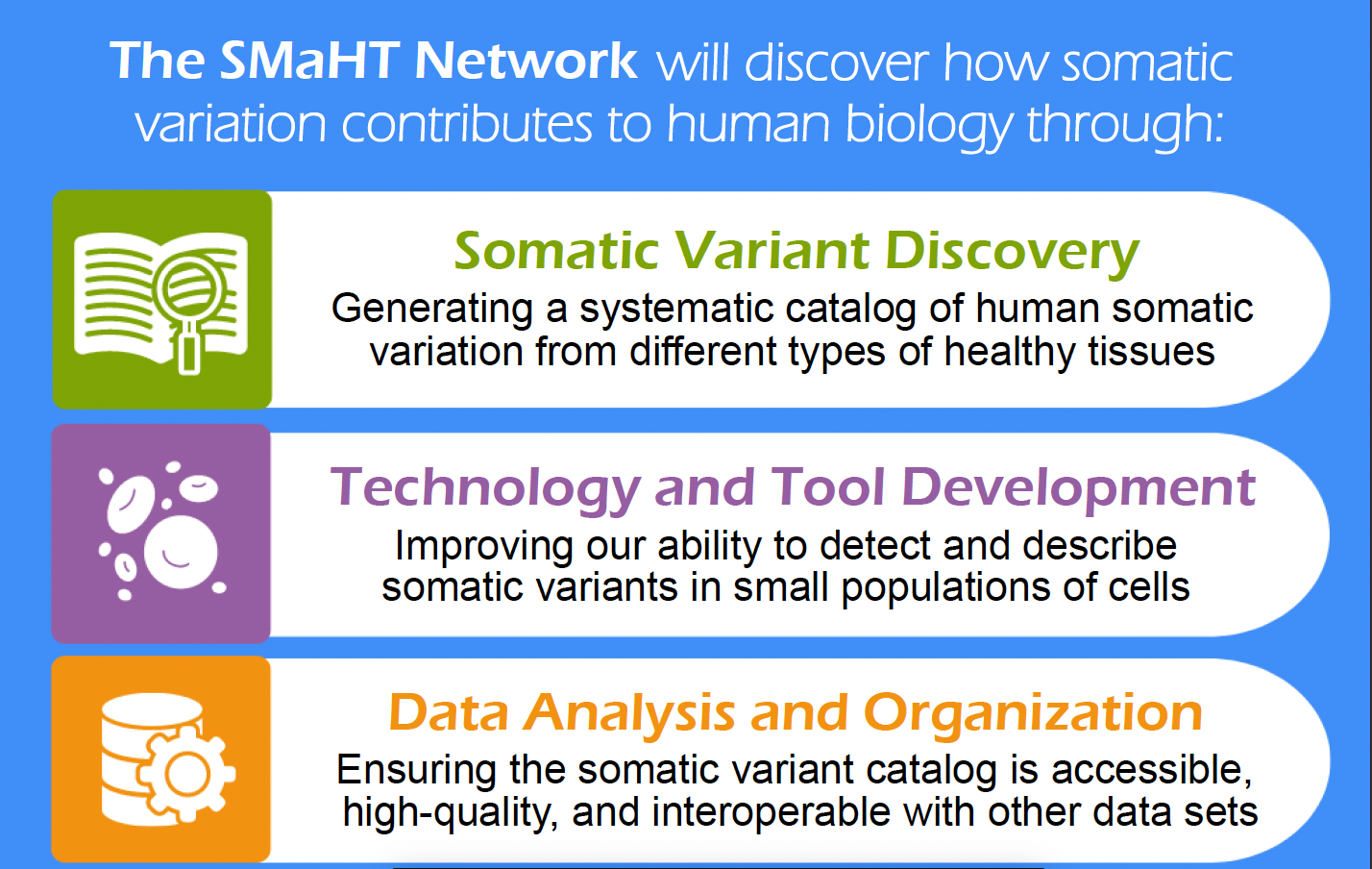Program Overview
The Somatic Mosaicism across Human Tissues (SMaHT) is a new initiative sponsored by the National Institutes of Health, Office of Strategic Coordination - The Common Fund. This initiative will investigate somatic variations: DNA changes that occur as our bodies develop, grow, and age, and how these changes impact health and disease. For the first time, scientists will create a large-scale, systematic catalog of somatic variation, providing an invaluable resource for the broader scientific community.
Somatic changes, by definition, are those that occur after fertilization and are not inherited from our biological parents. Somatic changes occur for many different reasons and can perpetuate as cells grow and divide. They can occur throughout our lifetime, and in effect, they create a patchwork of DNA variation from cell-to-cell and tissue-to-tissue.
Much like mosaic artwork includes many different pieces that are similar but not the same, these somatic changes within our bodies create mosaics of cells in tissues. Some somatic changes are linked to cancer, but we know less about how somatic variants impact other disease processes. SMaHT aims to propel research into the processes that create somatic mosaicism and its clinical significance. Researchers in the SMaHT Network will identify a common set of human tissues (10-12) from multiple individuals (100-150) to study. This will include generating large-scale genomic datasets to characterize the landscape of somatic variants both within and across tissues, as well as performing analyses to better understand the mutational processes that result in somatic mosaicism.
Core components of the Network include an Organization Center, Tissue Procurement Center, Genome Characterization Centers, and a Data Analysis Center. In addition to this core infrastructure, other awards will focus on Technology and Tool Development to improve the methods used to generate data and to analyze and detect somatic variants.
Key outcomes of the SMaHT Network include:
- A catalog of somatic variants in select tissues from human donors
- Innovative sequencing tools and analysis methods that optimize variant detection
- A SMaHT data workbench that seamlessly integrates with current tools to study DNA sequences, like genome browsers, and combines analysis of somatic variation with the current human reference genome
- Fundamentally new ways of understanding the contribution of somatic variation to human biology.
